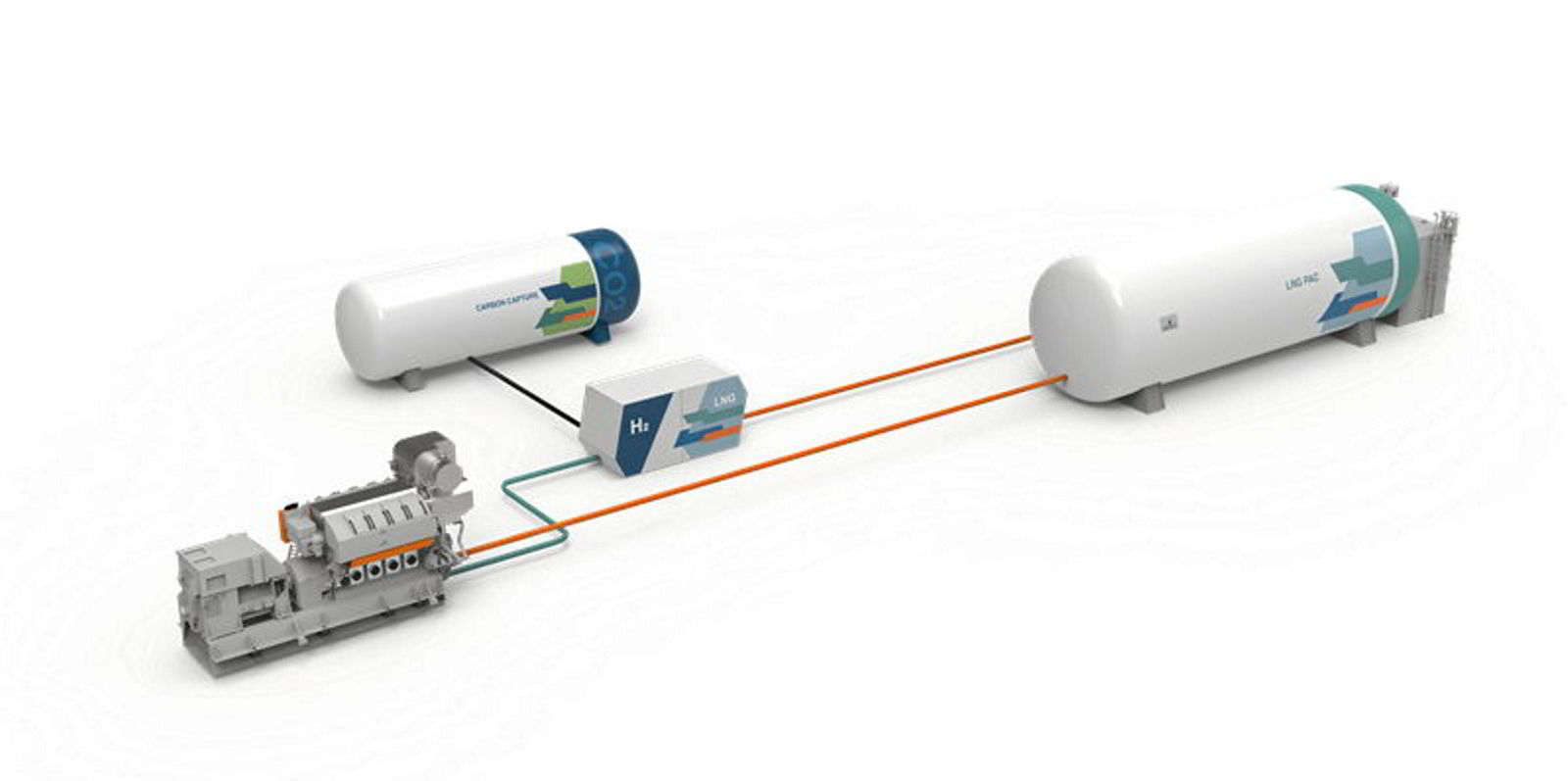Finnish technology company Wartsila has revealed a new project to produce hydrogen as fuel from LNG on board vessels.
The company is working with Italian class society RINA, technology company ABB, Greek hydrogen company Helbio, the Liberian Registry and an unnamed energy major to make this a reality.
The aim is to have a scalable and sustainable solution that will exceed the IMO's 2050 target for a 70% reduction in carbon intensity without the need for an extensive infrastructure investment.
"This offers the shipping industry a pathway to low-carbon operations within a reasonable time frame," Wartsila said.
Current difficulties and cost considerations regarding the production, distribution and on board storage of hydrogen have so far limited shipowners' interest in its direct use as a marine fuel, Wartsila believes.
Faster route to zero emissions
But by producing the fuel on board using readily available LNG, the solution becomes far more viable and in a much faster time than would otherwise be possible, the company argues.
No time frame has been given for the introduction of the system.
"Our gas engines are already able to use mixtures of hydrogen and LNG, and our future efforts will be to reach 100% hydrogen fuel," Wartsila's marine power product management and sales support director Lars Anderson said.
"This project will give owners a real chance to stay ahead of the competition in terms of efficiency and sustainability."
The concept is based on combining LNG with steam to produce hydrogen and CO2.
The hydrogen will be used directly in a mix with natural gas in internal combustion engines or in fuel cells, meaning hydrogen will not have to be stored on board.
The CO2 will then be liquefied using the cryogenic stream of LNG that would be used as fuel anyway.
The liquid will later be disposed of ashore for carbon storage.
The partners say the necessary equipment can easily be fitted on the deck of a commercial vessel.
Only LNG bunkering will be required and, by progressively increasing the production of hydrogen, the consumption of fossil methane and associated methane slip will be reduced at the same rate, Wartsila said.





